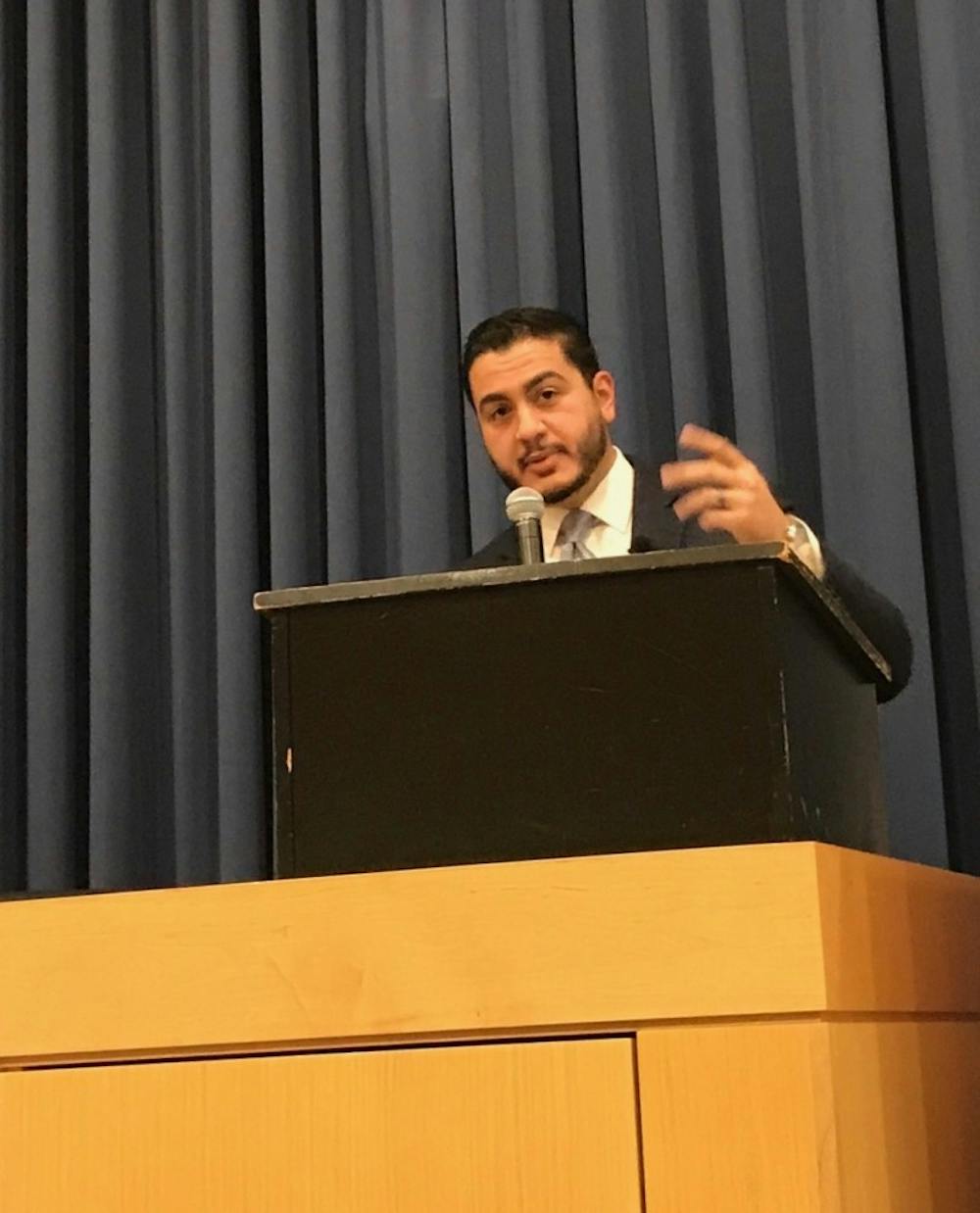According to former Michigan gubernatorial candidate Dr. Abdul El-Sayed, individual moral leadership is increasingly important in a world that revolves around institutional validation.
The 34-year-old politically progressive activist wove together anecdotes about his patients and family members as he recalled his career trajectory from medical residency to academia to public service. Earlier this year, El-Sayed sought the Democratic nomination to become the first Muslim governor of Michigan.
“Leadership is not working your way up an institution,” El-Sayed said. “Rather, leadership is the capacity to accelerate. You are either changing the direction or you are changing the vector force.”
El-Sayed emphasized the significance of individual responsibility in shaping institutional policy.
He noted that while progress is valuable, it’s important that institutional goals and personal vision align.
El-Sayed said he emulates the leadership style of his grandmother, who taught him how to listen, empathize, and meet people where they are.
As a medical intern striving to be his “grandmother’s doctor,” El-Sayed noticed structural flaws in the health care system that prevented patients from getting the best possible care.
El-Sayed recounted a time when his superiors failed to administer a CT scan to an alcoholic patient with a head injury. After the woman suffered withdrawal symptoms and her condition worsened, the team of doctors eventually learned the woman had HIV, diabetes, and a bleeding pelvic mass. After treatment, the woman was discharged, and, a few weeks later, El-Sayed found her lying on a subway car.

“The system is not geared to care for people who need it most,” El-Sayed said. He noted that as a physician, he could never systematically better the options and the opportunity for society’s most marginalized.
However, El-Sayed’s experience in medicine taught him how to ask the right questions — a lesson he carried over into his political life as he grappled with how best to advocate for improved medical care as executive director of the Detroit Health Department.
“I had never run for office, my name was Abdul, and I was 32 years old when I kicked off the campaign. I didn’t decide to run because I really coveted the office,” El-Sayed said. “But at some point I realized that if the things I wanted to do in any of these institutions were conditioned by the political forces at play, then I wanted to be a part of setting that agenda.”
El-Sayed’s political agenda was defined by his programs, which provided every child in the city with a free pair of glasses, tested all schools for lead in the water, and multiplied city funding for public health tenfold.

When El-Sayed began his run for governor, his candidacy grew to represent something larger than himself.
As a Muslim American, El-Sayed recalled feeling like there wasn’t a place for him in politics.
“I believe deeply in the work of representation. I know what it’s like to look up and say there is no one who looks like me, prays like me, and understands my experience in public office,” El-Sayed said.
But at the same time, he lamented the overemphasis on his identity.
“The subtext of my run in the media was ‘Muslim guy running for governor,’” he said. “It wasn’t that I was a doctor seeking to implement health care for everybody, build a system that wasn’t beholden to corporations, and make sure that people own a living wage.”
El-Sayed summed up his hopes for the future of political engagement.
“Our politics is about a conversation about who we are and who we want to be,” El-Sayed said. “We have to move beyond simple identification and we have to be moving into a politics that is focused on the moral and human work of empathy.”
This lecture took place at 5:30 p.m. in Whig Hall and was sponsored by the Whig-Clio Society.








